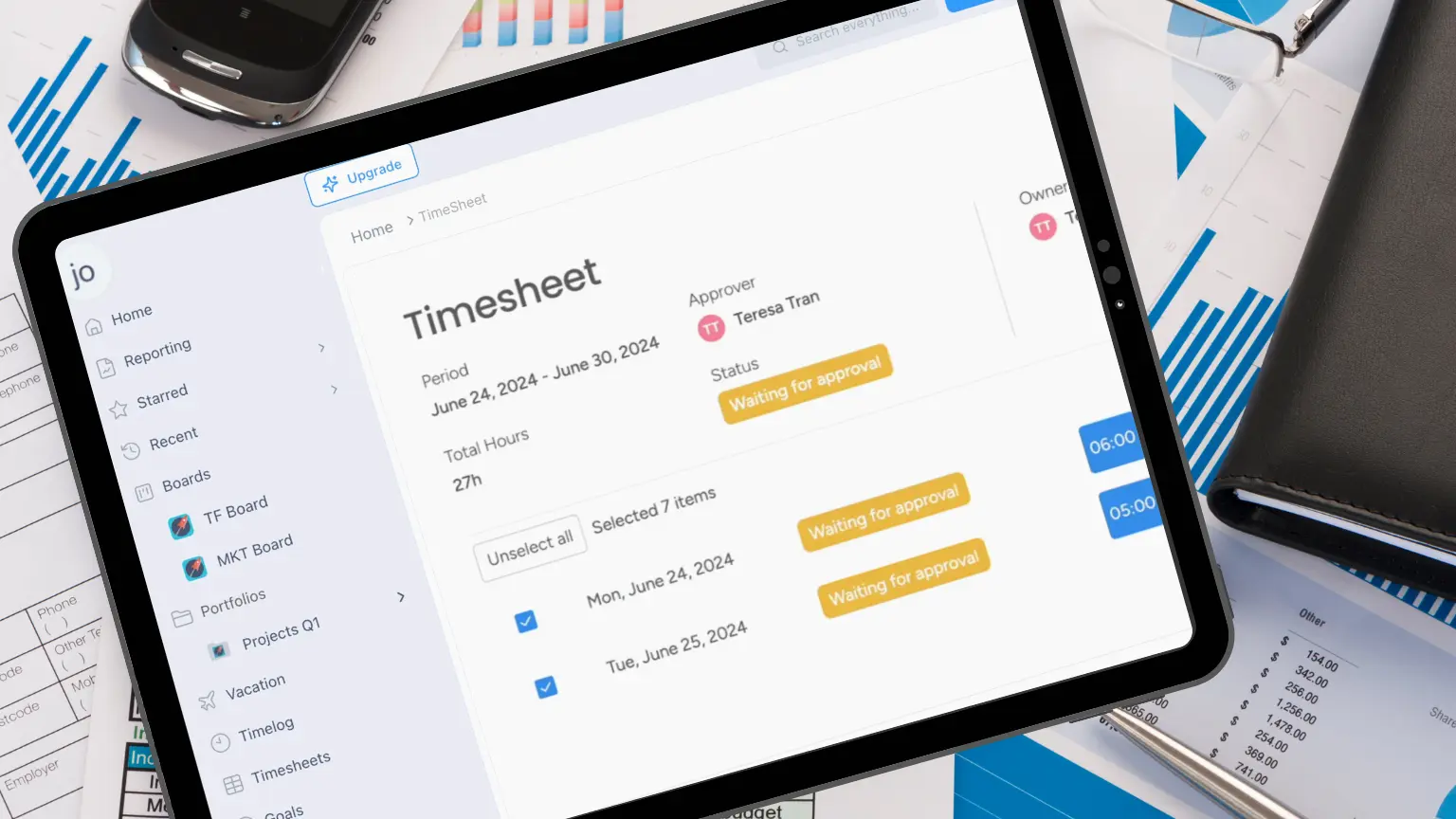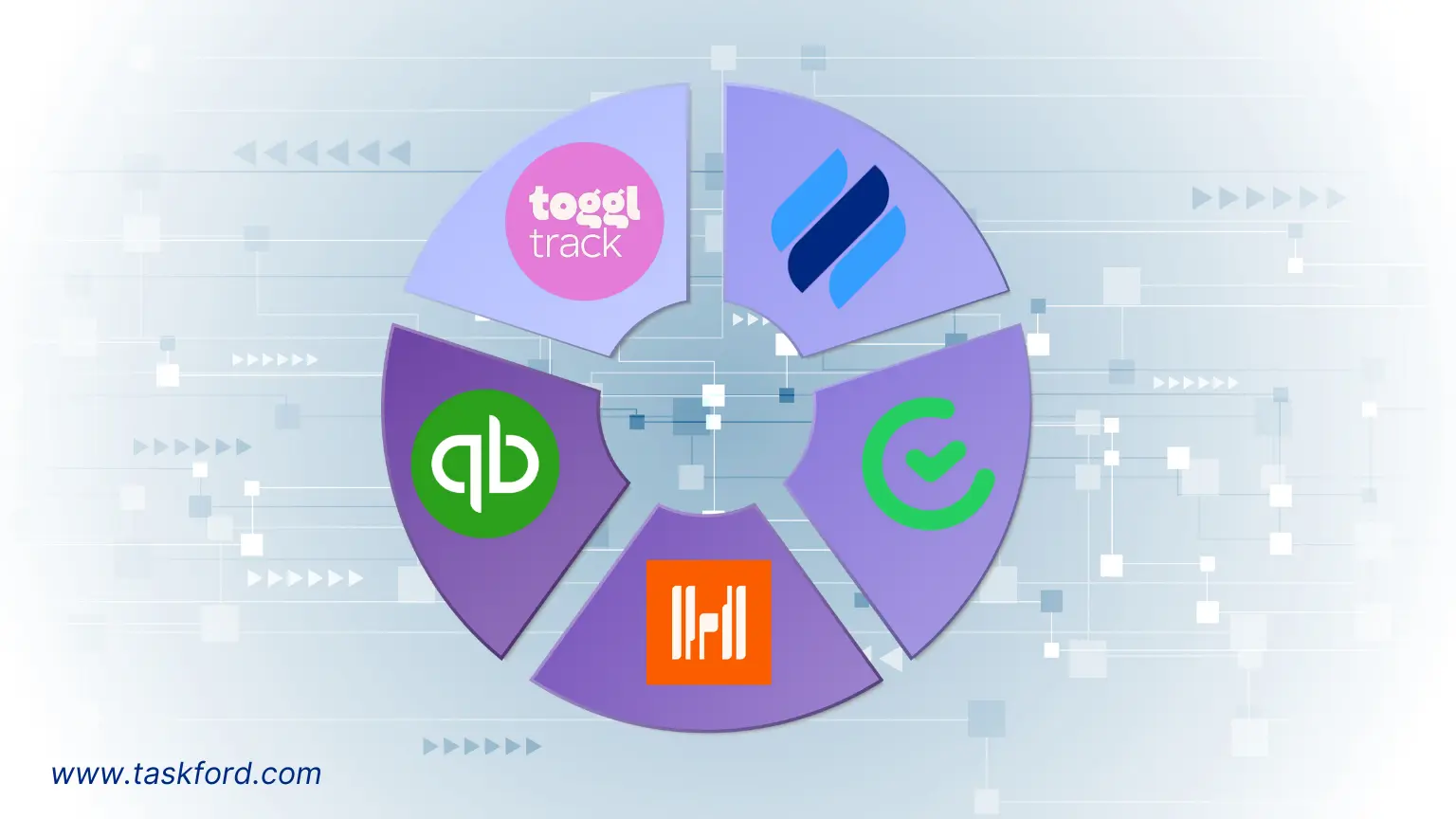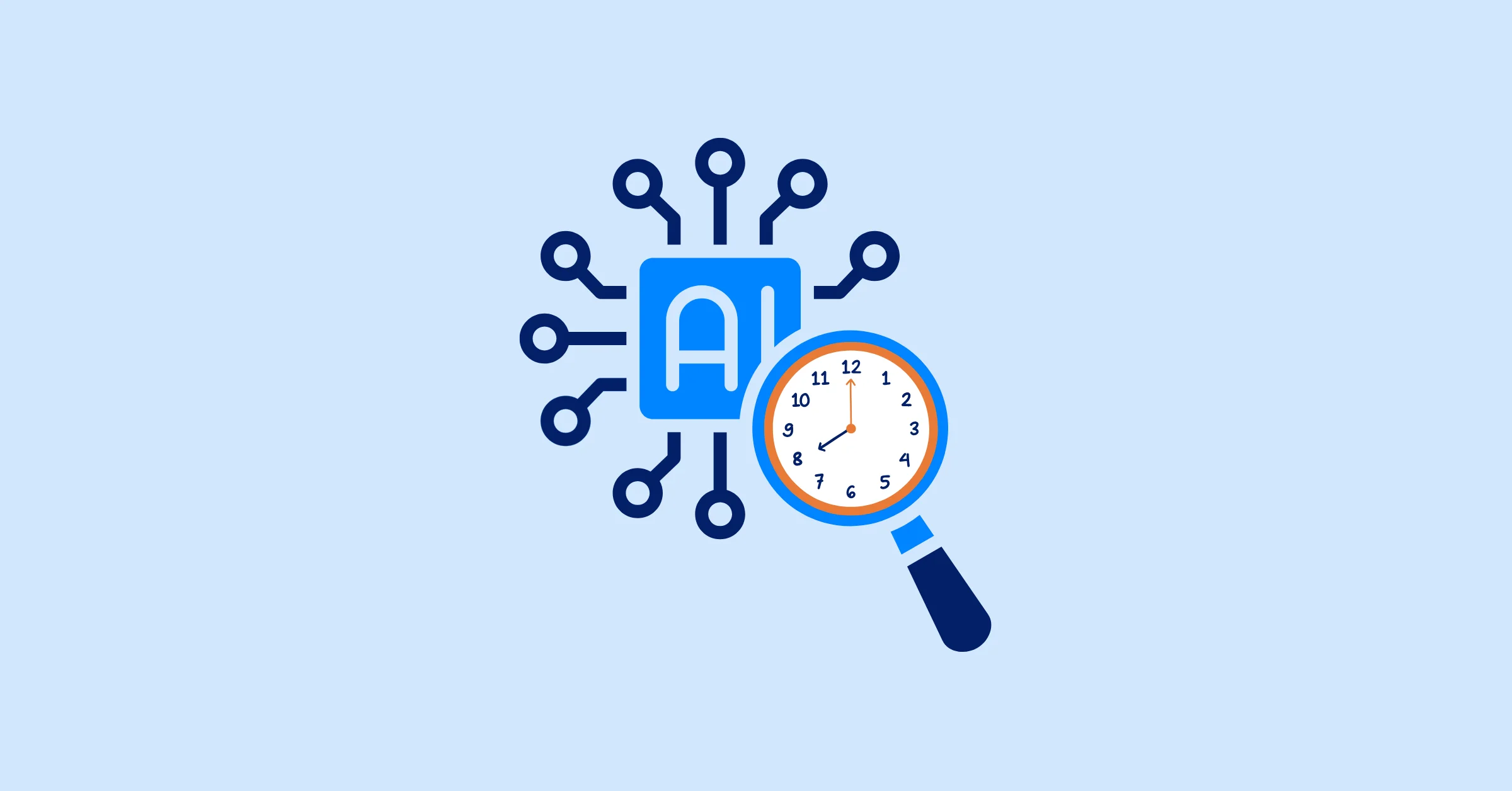Why Timesheet Software for Small Businesses Is A Must
Discover how the right timesheet software can help small businesses reduce waste, improve billing accuracy, prevent burnout, and unlock better decision-making based on real-time data.
Small businesses thrive on speed, flexibility, and strong personal connections. But without the right systems, that agility can lead to missed deadlines, overworked teams, and underbilled clients. Unlike larger companies with dedicated departments for HR, accounting, and project oversight, small business owners and managers are often forced to juggle it all. When time tracking becomes an afterthought, the business suffers in ways that aren’t always visible until it’s too late.
That’s where a timesheet software for small business steps in. It’s not just a time clock; it’s a safeguard for your revenue, your team, and your ability to grow. In this post, we’ll explore the real reasons small businesses need a software for time management, not as a luxury, but as a critical tool for survival.

Time Leakage Is Real, and It’s Costing You
Most small teams don’t notice time slipping through the cracks. Hours disappear between meetings, emails, untracked client calls, or "quick" tasks that no one logs. When time isn’t tracked properly, that lost time often translates directly into lost money.
A timesheet software captures work activity in real time, helping you account for billable and non-billable hours alike. This is especially important for service-based businesses, where every hour counts toward profitability.
For example:
- A design agency that loses just 30 minutes a day per employee to untracked work could be missing out on hundreds of billable hours per year.
- A consulting firm that underestimates project time may consistently underprice its services.
Accurate time tracking helps you price work appropriately, invoice correctly, and ensure your team’s time is aligned with the business’s financial goals.
Manual Time Tracking Wastes Your Most Valuable Resource
Small businesses often rely on spreadsheets, handwritten notes, or memory to track hours. While this may seem efficient at first, it creates more problems than it solves.
Manual tracking:
- Eats up administrative time
- Leads to inconsistent or inaccurate records
- Causes delays in payroll and invoicing
- Opens the door to disputes with clients or contractors
With a timesheet software, time entries are logged automatically or with minimal input. Many tools offer integrations with your task and project management platforms, allowing team members to log hours directly within their work environment.
This not only reduces busywork-it provides consistency, transparency, and a reliable audit trail for every project.
Small Teams Burn Out Faster Without Visibility
Unlike large organizations, small businesses don’t always have backup staff when someone’s overloaded. That makes resource management especially critical.
Timesheet data reveals:
- Which team members are overloaded
- Where time is being wasted
- Who might have capacity for more
With that knowledge, you can reassign tasks, adjust project timelines, or have more informed conversations about hiring. It also helps prevent silent burnout-where a high-performing team member quietly takes on too much and eventually disengages or leaves.
Protecting your people is one of the most important forms of resource protection a small business can invest in.
You Can’t Improve What You Don’t Measure
Good project management depends on knowing how long tasks and deliverables actually take. When time estimates are based on guesswork rather than data, small businesses can run into budget overruns, missed deadlines, or dissatisfied clients.
By using a timesheet software, you gain:
- Historical data on task duration
- Insights into project time allocation
- A realistic sense of team capacity
This leads to better planning, tighter proposals, and projects that run on time and on budget. It also enables smarter task management, since you’ll know which types of work eat up the most time-and whether the output is worth the investment.
Overdelivering: The Silent Killers of Profit
One of the most damaging patterns for small businesses is overdelivering on underpriced work. Without visibility into how long a project really takes, you might be delivering 60 hours of work for a 40-hour budget-without realizing it.
A timesheet software helps you:
- Match effort to pricing
- Spot unprofitable clients or projects
- Make smarter decisions about what work to take on
This doesn’t just affect external work. Even internal projects, like a website redesign or a new marketing campaign, can balloon if time isn’t tracked and managed. Over time, this eats away at the bandwidth and budget you could be spending on growth.
Better Time Records = Faster Payroll and Cleaner Invoicing
When timesheets are filled out inconsistently, or not at all, payroll becomes a headache. Managers spend hours chasing people down for their hours, then spend even more time fixing mistakes or resolving disputes.
Accurate, real-time timesheets solve this. Whether your business runs on hourly wages, fixed salaries with overtime, or contractor agreements, a timesheet software for small business makes the payroll process far less painful.
The same goes for client invoicing. When you can show exactly how many hours were spent on which tasks, invoices get paid faster and with fewer questions. You’re also far less likely to forget to bill for smaller items that add up over time.
Small Businesses Need to Stay Ready
Even if your business isn’t handling government contracts or regulated industries, accurate timesheets are essential for financial audits, tax deductions, and compliance with labor laws. Timesheet software helps maintain a clear, timestamped history of work performed.
It helps you:
- Verify paid overtime or time off
- Justify tax write-offs based on labor costs
- Support funding reports or client audits
- Resolve disputes with confidence
Without this data, your business is vulnerable to errors, fines, and wasted time during tax season or funding reviews.
Leveling Up Without Breaking What Works
Many small businesses aim to grow, but growth introduces complexity. A team of five might manage without detailed tracking-but at ten, or twenty, or more, things fall through the cracks.
Timesheet software supports scalable systems. As your headcount increases or your project load becomes more varied, you’ll already have the habits and infrastructure in place to manage:
- Cross-functional teams
- Multiple billable rates
- Simultaneous project timelines
Instead of playing catch-up later, smart teams put these systems in place early so their task management and resource management practices can grow with them.
Timesheets Build Accountability
Trust is important in a small team, but trust without transparency creates blind spots. When everyone fills out timesheets consistently, you create a culture of accountability, not surveillance. It becomes easier to answer:
- What’s blocking this task?
- Are we spending too much time on admin?
- Did we plan enough hours for this project?
The data helps both managers and employees have grounded conversations about workload and performance. It shifts conversations from vague impressions to clear evidence.
Choosing the Right Software: The Right Questions
When selecting timesheet software for your small business, it’s helpful to consider more than just price or popularity. Here are five important questions to ask before committing:
- Does it integrate with our current task or project tools?
- Can it support both hourly and salaried roles?
- What kind of reports can we generate?
- How easy is it for non-technical staff to use?
- Does it offer features like approvals, alerts, or budgeting?
Even affordable or free tools often include many of these features, so compare based on your actual needs.
Quick Picks: Best Timesheet Software Options for Small Businesses in 2025

| Software | Best For | Key Features | Pricing |
|---|---|---|---|
| Harvest | Agencies and invoicing needs | Time tracking, invoicing, expense tracking | Free plan. Paid plans start at $11/month |
| Toggl Track | Visual summaries and ease of use | Time tracking, team dashboards, reports | Free plan. Paid plans start at $9/month |
| TimeCamp | Integrated time + productivity | Time tracking, attendance, budgeting | Free plan. Paid plans start at $1.49/month |
| QuickBooks Time | Payroll-focused businesses | Time tracking, scheduling, integrations | Free plan. Paid plans start at $20/month |
| TaskFord | Teams needing time + project visibility | Time tracking, task management, resource management, reporting | Free trial, then custom pricing |
Real-World Example: From Messy Logs to Predictable Margins
Let’s say you run a small marketing agency with five employees. Each person works on multiple client campaigns. Before adopting timesheet software, everyone sent weekly summaries of their hours, but they were always late or vague.
After switching to a dedicated tool like Harvest or TaskFord:
- The team logs time daily, tied to specific client tasks.
- You notice one client is consuming far more hours than expected.
- You renegotiate that contract based on real data.
- You also see a part-time team member has extra capacity and shift tasks accordingly.
The result? Better profit margins, less communication friction, and more confident planning.
Final Thoughts
For small businesses, time is more than money, it’s everything. The ability to understand how it’s spent, where it’s being lost, and how to use it more effectively can be the difference between surviving and thriving.
A timesheet software gives you the insight and control you need to:
- Run more efficient projects
- Protect your team from burnout
- Improve billing accuracy
- Make smarter resource management decisions
You don’t need a complicated solution. You just need one that fits your team’s structure and gives you the clarity to operate with confidence.
Start with a simple tool, make time tracking a habit, and grow with systems that support your business without slowing it down.
Learn more:
Making work simpler,
smarter, and more connected
Join our waitlist and be notified first.

Related Blog
Subscribe for Expert Tips
Unlock expert insights and stay ahead with TaskFord. Sign up now to receive valuable tips, strategies, and updates directly in your inbox.



